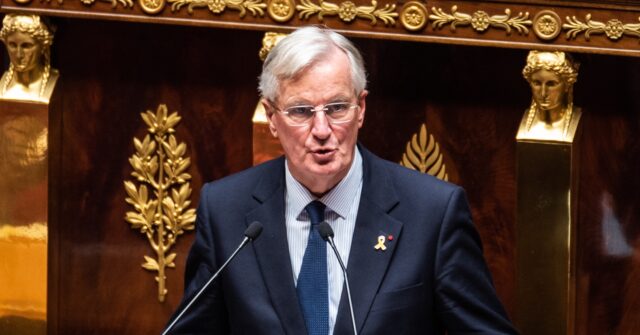France’s Prime Minister Michel Barnier has returned to work at the Hôtel de Matignon following successful surgery for a cervical lesion. This update comes from his doctor, Dr. Olivier Hersan, who noted that while specific details of the surgery remain scarce, the procedure was successful. Barnier, now 73 years old, holds the distinction of being the oldest individual to serve as prime minister in modern France’s Fifth Republic. He is set to resume his duties fully, including presiding over the upcoming Cabinet meeting, demonstrating his commitment to his responsibilities despite the health challenge.
Barnier’s surgery takes place at a critical juncture in his political career. He was appointed to the role of prime minister by President Emmanuel Macron in September 2023, succeeding Gabriel Attal, who had a brief tenure marked by his status as the youngest prime minister in history. Barnier stepped into this challenging role amidst a backdrop of political instability. Following the recent legislative elections, which resulted in no clear majority, the French National Assembly has become fragmented, with Macron’s centrist bloc, a left-wing coalition, and the far-right National Rally all holding significant power.
As a seasoned diplomat and former chief negotiator for the EU during the Brexit discussions, Barnier has established a reputation for fostering consensus. This skill was likely a crucial factor in Macron’s decision to appoint him, as the new prime minister’s mandate includes the daunting task of uniting a divided government. His appointment reflects a strategic move to stabilize governance in France and steer the administration toward more cohesive policymaking in challenging political circumstances.
In his new role, Barnier has outlined ambitious priorities for his government, focusing primarily on enhancing national security, reforming the education system, and addressing the pressing issue of France’s rising debt crisis. Each of these objectives speaks to the urgent concerns of the French populace and reflects Barnier’s awareness of the underlying issues that require immediate attention. The commitment to tackling these challenges suggests a proactive and multifaceted approach to governance, aimed at building a stronger, more resilient France.
Moreover, Barnier’s moderate and diplomatic style may offer a viable pathway to bridge the ideological divides within the National Assembly. Given the current political fragmentation, his ability to engage in dialogue with various factions could be pivotal in crafting legislation that resonates across the spectrum of political views. As the prime minister, he is tasked with not only steering policy but also with fostering an environment of cooperation among disparate political groups.
In summary, Prime Minister Michel Barnier’s recovery from surgery and his subsequent return to office highlight both his personal resilience and the broader political challenges facing his administration. His experience and diplomatic prowess place him in a unique position to navigate France through current complexities, as he aims to unify a fractured political landscape while advancing critical reforms in national security, education, and economic stability. With the lessons learned from his past negotiations and leadership roles, Barnier is poised to make significant contributions to shaping the future of France amid these turbulent times.

